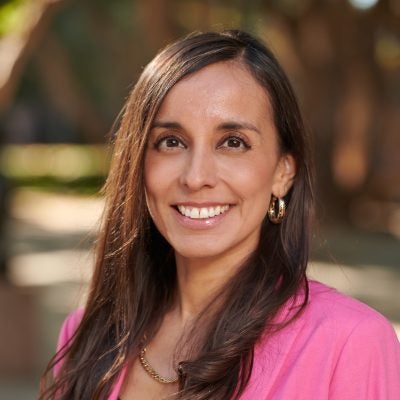Education History
Ph.D., UCLA; M.P.H, UCLA; B.A., University of Redlands
Scholarly Interests & Activities
I am currently working on two projects integrating virtual reality (VR) into a community-academic partnership and another in the classroom. These VR projects are grounded in a rigorous artistic pedagogical methodology created by Dr. Liliana Conlisk Gallegos (Professor in the Department of Communication & Media at California State University, San Bernardino): Transfronteriza Rasquache “no-muralismo” where community members and students have the opportunity to implement this artisanal hand-made approach to immersive world making in new media art using “no-muralismo” with the ultimate purpose of contributing to the Monuments to the Pluriverse exhibition. The exhibition (opening fall 2025) will be composed of VR worlds produced by classrooms all over California, tackling issues concerning our communities. As a scholarly artistic approach, “no-muralismo” is theoretically constructed in Chicana, decolonial, and transborder theories and was intended to demystify the use of technology (VR production) for the purpose of pedagogical applications in settings both inside and outside of academia. This methodology is applied to both meet the learning needs of students and to address the diverse challenges our communities face. In the first project, we are working with promotores (community health workers) to have them highlight their experiences as leaders in their community as well as their observations on the relationship between discrimination and substance use.
Funding for this project is provided by the CSU STEM-NET Interdisciplinary Collaborative Research SEED Award. In the second project, students in CHS 226 Women’s Health are co-creating a virtual world with their instructor that highlights diverse protective and risk factors and health disparities related to women’s health. Using OpenAI licenses, students will generate VR content, integrating cutting-edge generative AI technology into public health. This project was selected as part of the UCLA Call for OpenAI Project Proposals, and received ChatGPT Enterprise licenses as well as in-kind support from the AI Innovation Initiative led by UCLA IT Services. Funding for this project is provided by the UCLA Teaching and Learning Center Educational Innovation Grant.
The virtual worlds developed in these projects will not only serve as dynamic educational tools but also contribute to (1) a transformative approach to storytelling in public health that shares information and uplifts community voices as well as (2) public health interventions that center on healing approaches that incorporate VR.
